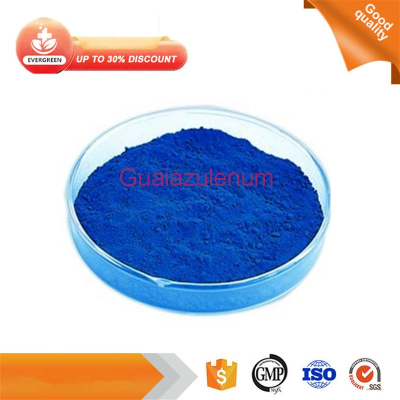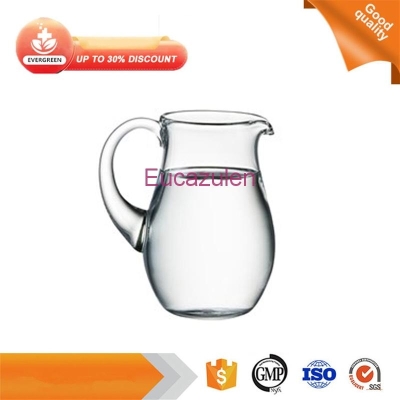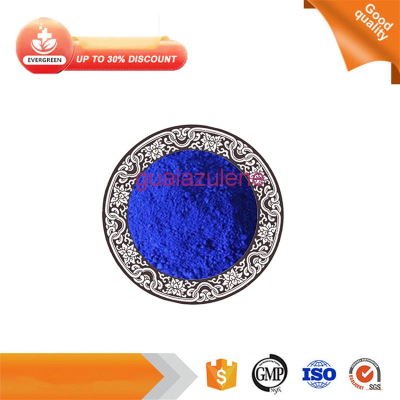-
Categories
-
Pharmaceutical Intermediates
-
Active Pharmaceutical Ingredients
-
Food Additives
- Industrial Coatings
- Agrochemicals
- Dyes and Pigments
- Surfactant
- Flavors and Fragrances
- Chemical Reagents
- Catalyst and Auxiliary
- Natural Products
- Inorganic Chemistry
-
Organic Chemistry
-
Biochemical Engineering
- Analytical Chemistry
- Cosmetic Ingredient
-
Pharmaceutical Intermediates
Promotion
ECHEMI Mall
Wholesale
Weekly Price
Exhibition
News
-
Trade Service
▎A study by the editor of WuXi AppTec's content team published today in the New England Journal of Medicine shows that a single vaccination of Pfizer/BioNTech or Moderna's new crown vaccine may be sufficient to provide immunity to previously infected people, so that they do not need to be infected.
Second vaccination.
Currently, the standard vaccination procedure for both mRNA vaccines requires two injections.
This discovery can not only reduce the unnecessary side effects of the second vaccination of previously infected people, but also help alleviate the serious shortage of vaccine supply.
Screenshot source: The New England Journal of Medicine.
The study was co-led by Viviana Simon and Dr.
Florian Krammer, professors of microbiology and medicine at the Icahn School of Medicine at Mount Sinai.
A total of 110 subjects were included, including 67 (new crown antibody) sero-negative patients (previously uninfected), 43 seropositive patients (previously infected), the overall average age is 40 years old.
These subjects received the first dose of mRNA vaccine in 2020.
Both Pfizer/BioNTech or Moderna's new crown vaccines received emergency use authorization from the US FDA in December 2020 and have been vaccinated in millions of people in the United States.
In the phase 3 trial, the two vaccines were effective in preventing symptomatic new coronavirus disease (COVID-19) after being vaccinated twice in 3-4 weeks.
Both vaccines are well tolerated.
Image source: 123RF researchers found that the previously infected people quickly produced antibodies within a few days of the first vaccination, and at the same time after the first vaccination, the antibody concentration in the body was 10 to 45 times that of the uninfected person.
; And after the second dose of vaccination, the antibody concentration produced by the previously infected person is more than 6 times the median antibody concentration of the uninfected person.Moreover, after the second injection of uninfected people, the antibody titer increased by three times, but in previously infected patients, no increase in antibody titer was observed after the second injection.
The intensity of the response of the previously infected population to the first injection seems to be similar to the response intensity of the previously uninfected population after the second injection.
The reason for the stronger response of the two groups is probably because the body has been "activated", which means that the immune cells have learned how to recognize the S protein of the virus (the antigenic structure used in the vaccine), so these cells have a stronger response.
, Resulting in a stronger response to the vaccine.
In addition, the researchers also investigated the local, injection site, and systemic reactions of 231 subjects after the first shot of the vaccine.
Among them, 148 were uninfected and 83 were previously infected.
Overall, neither vaccine had side effects that could lead to hospitalization.
The most common local symptoms were pain, swelling, and redness of the skin.
Its frequency has nothing to do with the serological status at the time of vaccination, and it will heal itself within a few days after vaccination.
Compared with uninfected people, previously infected people with existing immunity experience fatigue, headaches, and chills more frequently.
▲ The S protein antibody titers (A) of the first and second shots of the previously infected (orange) and uninfected people before vaccination, and the incidence of side effects after the first shot (B) (picture source: Reference [2]) Professor Simon said: “Our research shows that the antibody response of the previously infected population to the first dose of vaccine is equal to or even greater than the response of the uninfected population to the second
dose of vaccine .
For this reason, we believe that a single-dose vaccine It is enough to allow the previously infected person to develop immunity.
If the individual's infection history is unknown, it is recommended to test for possible antibodies.
If during the screening process it is determined that the previously infected person has developed antibodies, then the second dose of vaccine can be considered not to be vaccinated.
" Two studies in The Lancet also reported similar results, showing that a single dose of Pfizer/BioNTech vaccine in a previously infected person can trigger a stronger immune response, and the antibody level is an order of magnitude higher than that of an uninfected person who receives two regular doses.
I look forward to the continuous update and publication of such data, which can provide insights into the vaccination of infected persons and a more complete overall vaccination strategy.
Are there many allergic reactions to the new crown vaccine? JAMA has published safety data on vaccinations for over 60,000 people who have been infected with the new crown.
Is the vaccine still useful? Two "The Lancet" shows a strong immune response! Reduced 92% of COVID-19 infections and 94% of cases.
NEJM published data that 600,000 people in Israel were vaccinated with Pfizer/BioNTech vaccines.
One vaccination can reduce the risk of infection by 70%.
The first real-world study in the United Kingdom shows the effectiveness of COVID-19 vaccine protection.
China's vaccination rate plan in June this year Up to 40%, see the reference materials of a variety of new crown vaccines approved throughout China [1] Florian Krammer, et al.
,(2021).
Antibody Responses in Seropositive Persons after a Single Dose of SARS-CoV-2 mRNAVaccine.
Med, DOI: 10.
1056/NEJMc2101667[2] Second shot of COVID-19 vaccine may notbe necessary in previously infected individuals: study.
.
Retrieved MARCH 10, 2021, from https://medicalxpress.
com/news/2021-03-shot -covid-vaccine-previously-infected.
htm Note: This article aims to introduce the progress of medical and health research, not a treatment plan recommendation.
If you need guidance on treatment plans, please go to a regular hospital for treatment.
Second vaccination.
Currently, the standard vaccination procedure for both mRNA vaccines requires two injections.
This discovery can not only reduce the unnecessary side effects of the second vaccination of previously infected people, but also help alleviate the serious shortage of vaccine supply.
Screenshot source: The New England Journal of Medicine.
The study was co-led by Viviana Simon and Dr.
Florian Krammer, professors of microbiology and medicine at the Icahn School of Medicine at Mount Sinai.
A total of 110 subjects were included, including 67 (new crown antibody) sero-negative patients (previously uninfected), 43 seropositive patients (previously infected), the overall average age is 40 years old.
These subjects received the first dose of mRNA vaccine in 2020.
Both Pfizer/BioNTech or Moderna's new crown vaccines received emergency use authorization from the US FDA in December 2020 and have been vaccinated in millions of people in the United States.
In the phase 3 trial, the two vaccines were effective in preventing symptomatic new coronavirus disease (COVID-19) after being vaccinated twice in 3-4 weeks.
Both vaccines are well tolerated.
Image source: 123RF researchers found that the previously infected people quickly produced antibodies within a few days of the first vaccination, and at the same time after the first vaccination, the antibody concentration in the body was 10 to 45 times that of the uninfected person.
; And after the second dose of vaccination, the antibody concentration produced by the previously infected person is more than 6 times the median antibody concentration of the uninfected person.Moreover, after the second injection of uninfected people, the antibody titer increased by three times, but in previously infected patients, no increase in antibody titer was observed after the second injection.
The intensity of the response of the previously infected population to the first injection seems to be similar to the response intensity of the previously uninfected population after the second injection.
The reason for the stronger response of the two groups is probably because the body has been "activated", which means that the immune cells have learned how to recognize the S protein of the virus (the antigenic structure used in the vaccine), so these cells have a stronger response.
, Resulting in a stronger response to the vaccine.
In addition, the researchers also investigated the local, injection site, and systemic reactions of 231 subjects after the first shot of the vaccine.
Among them, 148 were uninfected and 83 were previously infected.
Overall, neither vaccine had side effects that could lead to hospitalization.
The most common local symptoms were pain, swelling, and redness of the skin.
Its frequency has nothing to do with the serological status at the time of vaccination, and it will heal itself within a few days after vaccination.
Compared with uninfected people, previously infected people with existing immunity experience fatigue, headaches, and chills more frequently.
▲ The S protein antibody titers (A) of the first and second shots of the previously infected (orange) and uninfected people before vaccination, and the incidence of side effects after the first shot (B) (picture source: Reference [2]) Professor Simon said: “Our research shows that the antibody response of the previously infected population to the first dose of vaccine is equal to or even greater than the response of the uninfected population to the second
dose of vaccine .
For this reason, we believe that a single-dose vaccine It is enough to allow the previously infected person to develop immunity.
If the individual's infection history is unknown, it is recommended to test for possible antibodies.
If during the screening process it is determined that the previously infected person has developed antibodies, then the second dose of vaccine can be considered not to be vaccinated.
" Two studies in The Lancet also reported similar results, showing that a single dose of Pfizer/BioNTech vaccine in a previously infected person can trigger a stronger immune response, and the antibody level is an order of magnitude higher than that of an uninfected person who receives two regular doses.
I look forward to the continuous update and publication of such data, which can provide insights into the vaccination of infected persons and a more complete overall vaccination strategy.
Are there many allergic reactions to the new crown vaccine? JAMA has published safety data on vaccinations for over 60,000 people who have been infected with the new crown.
Is the vaccine still useful? Two "The Lancet" shows a strong immune response! Reduced 92% of COVID-19 infections and 94% of cases.
NEJM published data that 600,000 people in Israel were vaccinated with Pfizer/BioNTech vaccines.
One vaccination can reduce the risk of infection by 70%.
The first real-world study in the United Kingdom shows the effectiveness of COVID-19 vaccine protection.
China's vaccination rate plan in June this year Up to 40%, see the reference materials of a variety of new crown vaccines approved throughout China [1] Florian Krammer, et al.
,(2021).
Antibody Responses in Seropositive Persons after a Single Dose of SARS-CoV-2 mRNAVaccine.
Med, DOI: 10.
1056/NEJMc2101667[2] Second shot of COVID-19 vaccine may notbe necessary in previously infected individuals: study.
.
Retrieved MARCH 10, 2021, from https://medicalxpress.
com/news/2021-03-shot -covid-vaccine-previously-infected.
htm Note: This article aims to introduce the progress of medical and health research, not a treatment plan recommendation.
If you need guidance on treatment plans, please go to a regular hospital for treatment.







